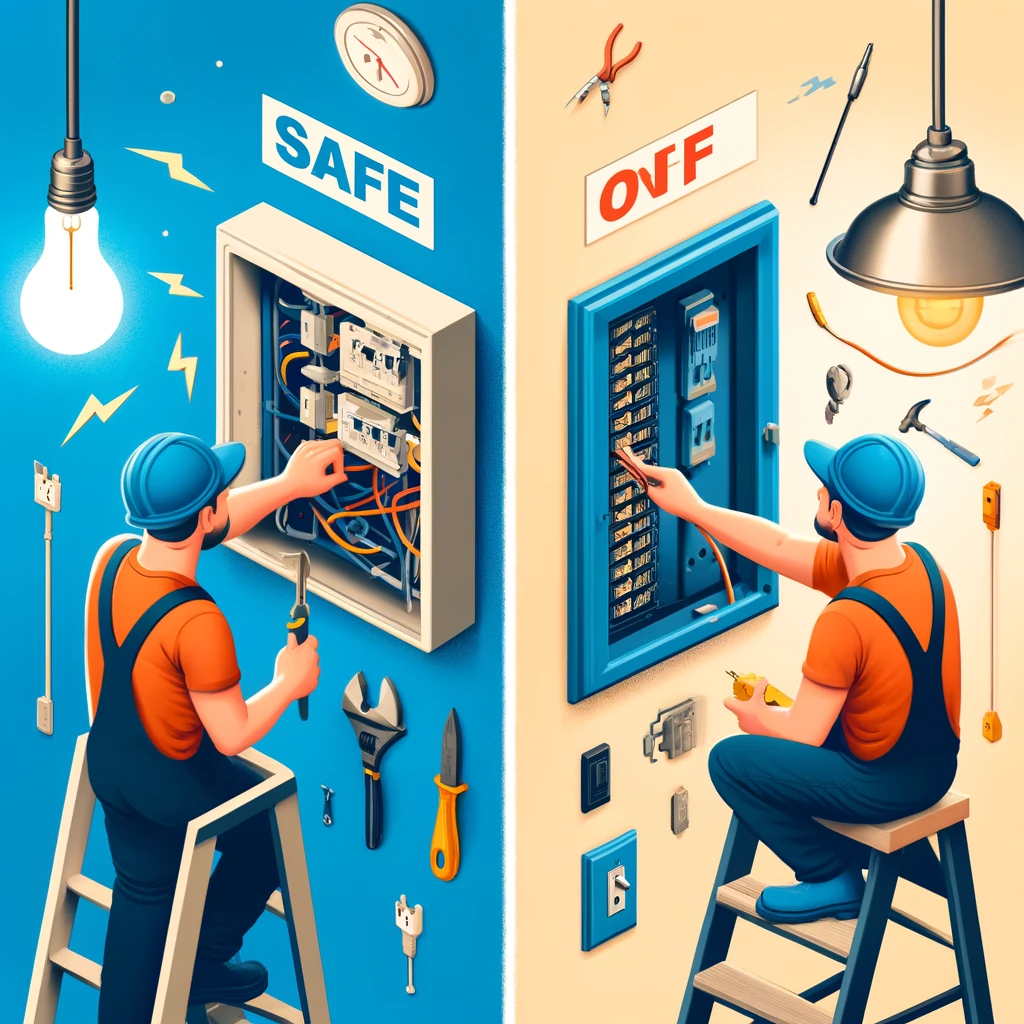DIY Electrical Work: What You Can and Shouldn’t Do

DIY projects can be a rewarding way to enhance your home and potentially save money. However, when it comes to electrical work, it’s crucial to understand what tasks are safe to handle on your own and which ones require professional expertise. Here’s a guide to help you navigate DIY electrical work safely.
1. Safe DIY Electrical Tasks
- Changing Light Fixtures: Replacing light fixtures is a relatively simple task for those with basic DIY skills. Always ensure the power is turned off at the circuit breaker before you start.
- Replacing Switches and Outlets: Swapping out light switches and electrical outlets is another task that most homeowners can manage. Again, make sure the power is shut off at the circuit breaker to avoid any shocks.
- Installing Dimmers: Adding a dimmer switch to existing lighting can enhance the ambiance of a room and is generally a straightforward DIY project.
2. Electrical Tasks to Leave to the Professionals
- Any Work on the Service Panel: The electrical panel, or breaker box, is a critical and potentially dangerous part of your home’s electrical system. Adding circuits, replacing breakers, or any other work inside the panel should always be done by a licensed electrician.
- Running New Wiring: Extending existing circuits or adding new ones involves more than just connecting wires. It requires an understanding of load calculations, building codes, and safety standards.
- Outdoor Electrical Systems: Installing outdoor lighting or outlets involves different requirements than indoor systems, including weatherproofing and ensuring all installations are up to code for outdoor use.
3. Why Professional Help is Crucial
- Safety: Electrical work can be hazardous. Mistakes can lead to fire hazards, electrical shock, and other serious risks.
- Compliance with Codes: Professional electricians are trained to comply with all local building codes and regulations, which can vary widely.
- Quality of Work: Professionals ensure that all electrical work is done efficiently and correctly, which can affect your home’s safety and resale value.
4. Tips for Working with Electricity
- Always Turn Off Power: Before starting any electrical work, always turn off power at the circuit breaker.
- Use the Proper Tools: Invest in insulated tools that are specifically meant for electrical work to enhance safety.
- Test Before You Touch: Use a voltage tester to ensure wires are not live before you start working.
Conclusion: While many minor electrical tasks can be safely handled by a DIY enthusiast with the right tools and knowledge, significant or complex electrical work should always be left to the professionals. Knowing when to call in an expert can not only save you from potential hazards but also ensure that your home’s electrical system remains reliable and up to code.
